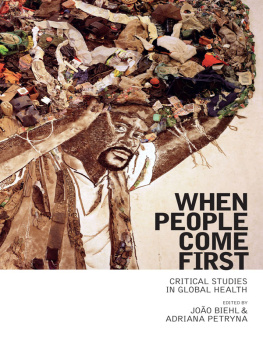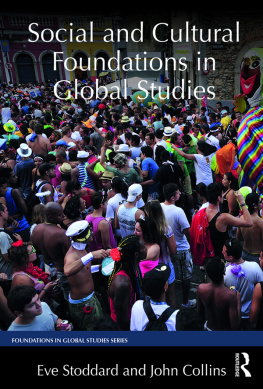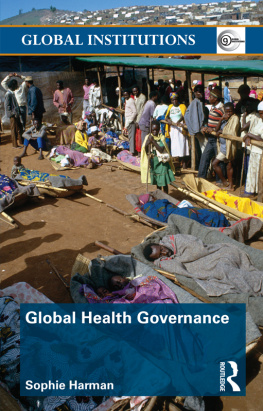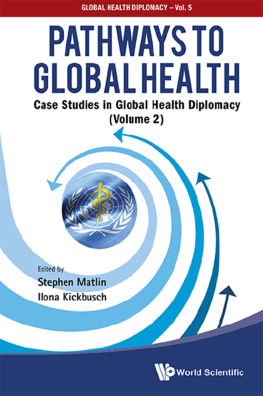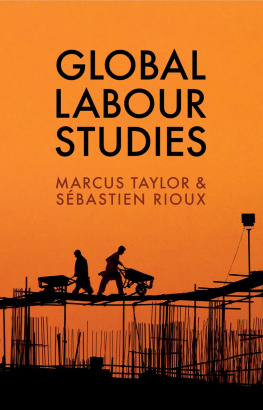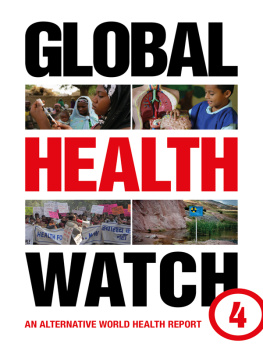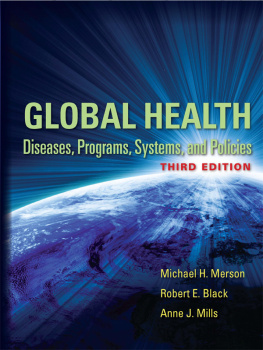
WHEN PEOPLE COME FIRST
WHEN PEOPLE COME FIRST
CRITICAL STUDIES IN GLOBAL HEALTH
EDITED BY
JOO BIEHL & ADRIANA PETRYNA
PRINCETON UNIVERSITY PRESS
PRINCETON AND OXFORD
Copyright 2013 by Princeton University Press
Published by Princeton University Press, 41 William Street, Princeton, New Jersey 08540
In the United Kingdom: Princeton University Press, 6 Oxford Street, Woodstock, Oxfordshire OX20 1TW
press.princeton.edu
Cover art by Vik Muniz, Atlas (Carlo), 2008, digital C-print, 229.9 180.3 cm, Vik Muniz/Licensed by VAGA, New York, NY
Cover design by warrakloureiro
All Rights Reserved
Library of Congress Cataloging-in-Publication Data
When people come first : critical studies in global health / edited by Joao Biehl and Adriana Petryna.
pages cm
Summary: When People Come First critically assesses the expanding field of global health. It brings together an international and interdisciplinary group of scholars to address the medical, social, political, and economic dimensions of the global health enterprise through vivid case studies and bold conceptual work. The book demonstrates the crucial role of ethnography as an empirical lantern in global health, arguing for a more comprehensive, people-centered approach. Topics include the limits of technological quick fixes in disease control, the moral economy of global health science, the unexpected effects of massive treatment rollouts in resource-poor contexts, and how right-to-health activism coalesces with the increased influence of the pharmaceutical industry on health care. The contributors explore the altered landscapes left behind after programs scale up, break down, or move on. We learn that disease is really never just one thing, technology delivery does not equate with care, and biology and technology interact in ways we cannot always predict. The most effective solutions may well be found in people themselves, who consistently exceed the projections of experts and the medical-scientific, political, and humanitarian frameworks in which they are cast. When People Come First sets a new research agenda in global health and social theory and challenges us to rethink the relationships between care, rights, health, and economic futures Provided by publisher.
Includes bibliographical references and index.
ISBN 978-0-691-15738-2 (hardback) ISBN 978-0-691-15739-9 (paperback)
1. World health. 2. Public healthInternational cooperation. I. Biehl, Joo Guilherme.
II. Petryna, Adriana, date.
RA441.W44 2013
362.1dc23
2012049338
British Library Cataloging-in-Publication Data is available
This book has been composed in Sabon and Helvetica Neue
Printed on acid-free paper.
Printed in the United States of America
10 9 8 7 6 5 4 3 2 1
Contents
Malaria and Global Health in the Twenty-First Century
MARCOS CUETO 30
Subjects, Profits, Erasures
VINCANNE ADAMS 54
Human Rights and a People-Centered Approach to Health Policy
JOSEPH J. AMON 91
The Moral Economy of Childhood in the Times of AIDS
DIDIER FASSIN 109
Belonging in Ugandas Projectified Landscape of AIDS Care
SUSAN REYNOLDS WHYTE, MICHAEL A. WHYTE, LOTTE MEINERT, AND JENIPHER TWEBAZE 140
PEPFAR in Mozambique
JAMES PFEIFFER 166
Pain and the Politics of Relief in Botswanas Cancer Ward
JULIE LIVINGSTON 182
Witchcraft, Oracles and Magic in a Disease Eradication Program
AMY MORAN-THOMAS 207
The Market for Anti-Tuberculosis Drugs in India
STEFAN ECKS AND IAN HARPER 252
The Work of Pharmaceuticals in Santiago, Chile
CLARA HAN 276
The Turn to Chronic Diseases in Global Health
IAN WHITMARSH 302
Therapeutic Markets and the Judicialization of the Right to Health
JOO BIEHL AND ADRIANA PETRYNA 325
The Peopling of Technologies
MICHAEL M. J. FISCHER 347
WHEN PEOPLE COME FIRST
Critical Global Health
JOO BIEHL AND ADRIANA PETRYNA
A Visit with the Patient
Janira lies in bed at home while her mother, Carmen, visits the public defenders office in Porto Alegre, Brazil. Carmen is filing a lawsuit to obtain the medicine that her daughter urgently needs to treat severe pulmonary hypertension. A heart attack the year before led to a loss of mobility, and Janira has not been able to resume work. Her doctor has prescribed six medicines; five are provided through Brazils universal health system, while the sixth, a high-cost vasodilator, is not. The doctor advised the low-income family to seek free legal assistance at the public defenders office.
Carmen hands the doctors prescription to Paula Pinto de Souza, the public defender responsible for her case. Is it here that I get the medicine? she asks.
Paula welcomes Carmen to the juridical hospital, but she explains that getting the medicine will not be so simple. In her role as a legal advocate for the poor and chronically ill, Paulas job is to ameliorate suffering and to restore the rights of her clients. The person, she explains, comes here sick. Her right to health has been profoundly injured by public power. Even if the medicine might not bring them life, the claim is also for their dignity. That, at least, is Paulas goal.
Given the severity of Janiras condition, Paula will ask the district judge to issue a court injunction compelling the state to provide Janiras treatment right away. She cautions Carmen not to get her hopes up too high, however, as state attorneys will most likely appeal the lawsuit. It might take years to reach a verdict, she says. And this is not unusual. It is in fact typical of the right-to-health lawsuits that now inundate the Brazilian judiciary. And the problem does not end there. Carmen complains that she has already gone to the state pharmacy several times to obtain the five other medicines that Janira needs, and that should be publicly available, but they are always out of stock.
Carmen, whose husband died of cancer, is retired and lives on a small pension. Her home is a one-room shack on the outskirts of the city, which she shares with her daughter and two granddaughters. A monthly course of the vasodilator Janira needs costs about US$1,000. Carmen has been purchasing the medicine in small amounts with borrowed cash, indebting herself to members of her extended family. She makes a little extra money performing Afro-Brazilian rituals in her home and occasionally receives a food basket from her religious organization. When we visited the shack, we noticed an offering to the orixs filled with packaged sweets. I do this so that all patients who need medicines win their lawsuits, Carmen explains.
What Janira really needs is a heart transplant, and all the medicines she takes are meant to keep her healthy enough to undergo the surgery. Janiras brother, who lives in another shack on the same lot with his own family, routinely checks the status of her case at a nearby Internet station. Within days of the public defenders filing, the district judge issues an injunction for the medicine to be delivered to Janira. Two months later it has still not arrived.
At a time of great medical progress, Janira is barely clinging to life. Her family is locked in a daily struggle for survival on several fronts, for in order to preserve Janiras life they must not only battle her disease but also resist political and economic death and social oblivion. Theirs is only one story, but it accurately reflects the way in which broad-based questions of access to technology and social justice are often contested in todays rapidly changing public health context. Anthropological fieldwork or home visits, such as the one we have described, can vividly capture and draw attention to these efforts and to the real persons whose imperiled lives they impact. For anthropologists, these peopled accountsstories that are so often hidden from view, obscured by more abstract and bureaucratic considerations of public policyare the very fabric of alternative social theorizing. By looking closely at life stories and at the ups and downs of individuals and communities as they grapple with inequality, struggle to access technology, and confront novel state-market formations, we begin to apprehend larger systems. We are able to see them in the making or in the process of dissolution, and we understand more intimately the local realities, so often unspoken, that result when people are seen or governed in a particular way, or not at all.
Next page
